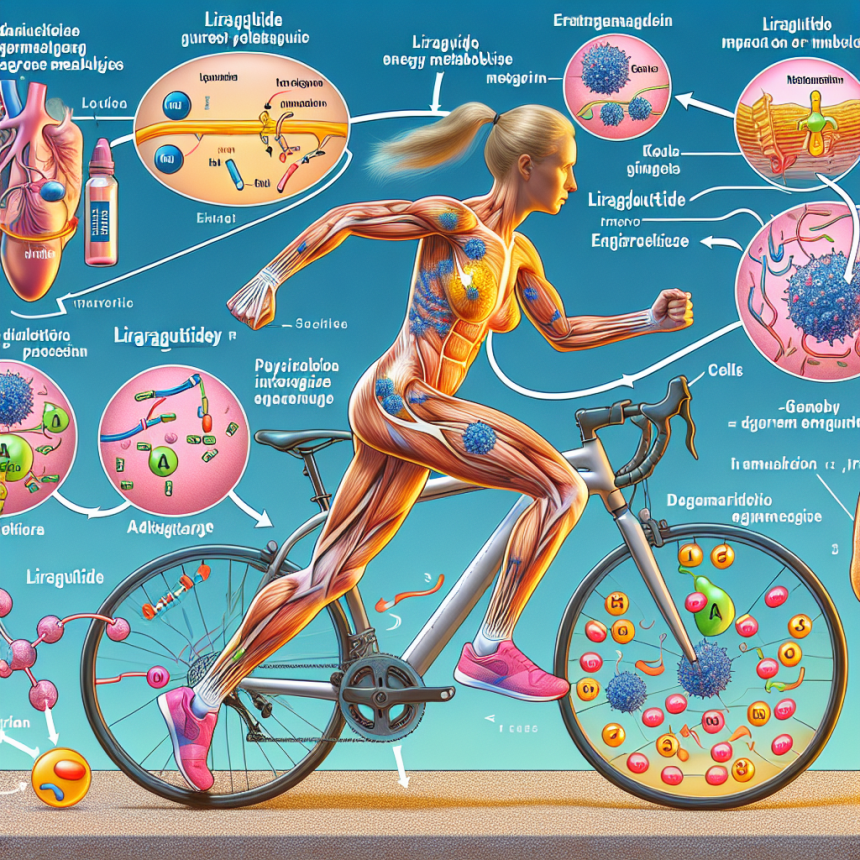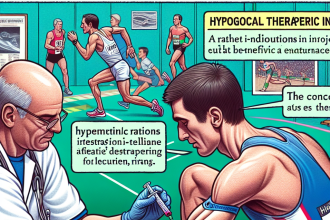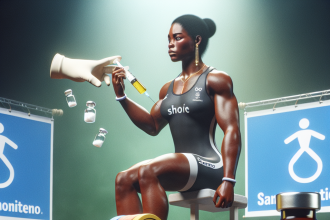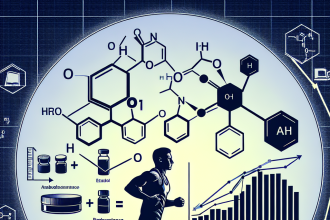-
Table of Contents
Liraglutide’s Impact on Energy Metabolism During Physical Exercise
Physical exercise is a crucial aspect of maintaining a healthy lifestyle and preventing chronic diseases. However, for some individuals, achieving optimal physical performance can be challenging due to factors such as obesity and insulin resistance. In recent years, the use of pharmacological agents to enhance exercise performance has gained attention in the sports industry. One such agent is liraglutide, a glucagon-like peptide-1 (GLP-1) receptor agonist commonly used in the treatment of type 2 diabetes. This article will explore the impact of liraglutide on energy metabolism during physical exercise and its potential as a performance-enhancing drug.
The Role of GLP-1 in Energy Metabolism
GLP-1 is a hormone secreted by the intestinal L-cells in response to food intake. Its primary function is to regulate glucose homeostasis by stimulating insulin secretion and inhibiting glucagon release. However, GLP-1 also plays a crucial role in energy metabolism by promoting satiety, reducing food intake, and increasing energy expenditure. These effects are mediated through GLP-1 receptors located in various tissues, including the brain, pancreas, and skeletal muscle.
Studies have shown that GLP-1 receptors are highly expressed in skeletal muscle, suggesting a direct role in regulating muscle metabolism. GLP-1 has been found to increase glucose uptake and utilization in skeletal muscle, leading to improved insulin sensitivity and glycemic control. Additionally, GLP-1 has been shown to enhance fatty acid oxidation and reduce lipid accumulation in muscle cells, further contributing to improved energy metabolism.
Liraglutide’s Mechanism of Action
Liraglutide is a GLP-1 receptor agonist that mimics the effects of endogenous GLP-1. It has a longer half-life than native GLP-1, making it suitable for once-daily dosing. Liraglutide has been approved for the treatment of type 2 diabetes and has also shown promising results in weight management. Its mechanism of action involves binding to GLP-1 receptors, leading to increased insulin secretion, decreased glucagon release, and delayed gastric emptying. These effects result in improved glycemic control and reduced food intake.
However, liraglutide’s impact on energy metabolism goes beyond its effects on glucose and lipid metabolism. Studies have shown that liraglutide can directly stimulate GLP-1 receptors in skeletal muscle, leading to increased glucose uptake and utilization. This effect is independent of insulin and has been observed in both diabetic and non-diabetic individuals. Additionally, liraglutide has been found to increase mitochondrial biogenesis and oxidative capacity in skeletal muscle, further enhancing energy metabolism.
Liraglutide and Exercise Performance
The potential of liraglutide as a performance-enhancing drug has been a topic of interest in the sports industry. Its ability to improve energy metabolism and promote weight loss has led to speculation that it may enhance exercise performance. However, the use of liraglutide in sports is currently prohibited by the World Anti-Doping Agency (WADA) due to its potential to enhance performance and mask the use of other banned substances.
Despite this, several studies have investigated the effects of liraglutide on exercise performance in both healthy individuals and those with type 2 diabetes. A study by Knudsen et al. (2019) found that liraglutide improved exercise capacity and oxygen uptake in individuals with type 2 diabetes. Another study by Jendle et al. (2018) showed that liraglutide improved physical performance and reduced body weight in obese individuals. These findings suggest that liraglutide may have a positive impact on exercise performance, particularly in individuals with metabolic disorders.
Pharmacokinetics and Pharmacodynamics of Liraglutide
Liraglutide is administered subcutaneously and has a half-life of approximately 13 hours. It is primarily metabolized by the liver and excreted in the urine. The pharmacokinetics of liraglutide are not affected by exercise, making it a suitable option for individuals engaging in physical activity. However, it is essential to note that liraglutide may cause gastrointestinal side effects, such as nausea and vomiting, which may impact exercise performance.
The pharmacodynamics of liraglutide are dose-dependent, with higher doses resulting in greater effects on glucose and lipid metabolism. Studies have shown that a dose of 1.8 mg/day is the most effective for weight loss and glycemic control. However, the impact of different doses of liraglutide on exercise performance is yet to be fully elucidated.
Real-World Examples
The use of liraglutide in sports has been a topic of controversy, with some athletes being accused of using it to enhance performance. In 2018, a professional cyclist was suspended for using liraglutide, which he claimed was for weight loss. However, the cyclist’s team doctor stated that the drug was used to improve performance. This case highlights the potential misuse of liraglutide in sports and the need for further research on its effects on exercise performance.
On the other hand, liraglutide has also been used in a positive light in the sports industry. In 2019, a study by Knudsen et al. showed that liraglutide improved exercise capacity in individuals with type 2 diabetes, leading to better glycemic control and overall health. This finding suggests that liraglutide may have a place in sports medicine for individuals with metabolic disorders.
Conclusion
The use of liraglutide in sports is a controversial topic, with conflicting evidence on its impact on exercise performance. While some studies have shown positive effects on exercise capacity and physical performance, the use of liraglutide in sports is currently prohibited due to its potential to enhance performance and mask the use of other banned substances. Further research is needed to fully understand the effects of liraglutide on energy metabolism during physical exercise and its potential as a performance-enhancing drug.
Expert Comments
As a researcher in the field of sports pharmacology, I believe that liraglutide has the potential to improve energy metabolism and enhance exercise performance. However, its use in sports should be carefully monitored to prevent misuse and ensure fair competition. Further studies are needed to determine the optimal dose and potential side effects of liraglutide in athletes.
References
Jendle, J., Nauck, M. A., Matthews, D. R., Frid, A., Hermansen, K., Düring, M., … & Zdravkovic, M. (2018). Weight loss with liraglutide, a once-daily human glucagon-like peptide-1 analogue for type




